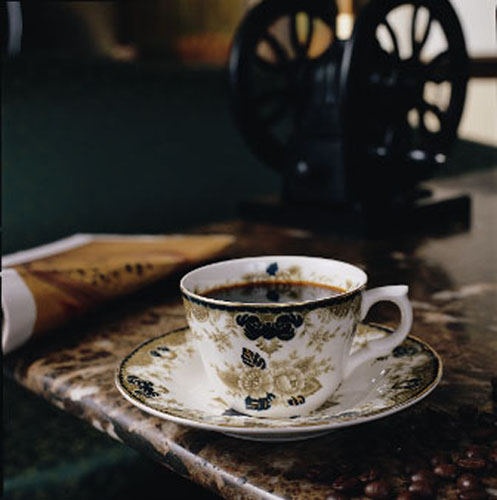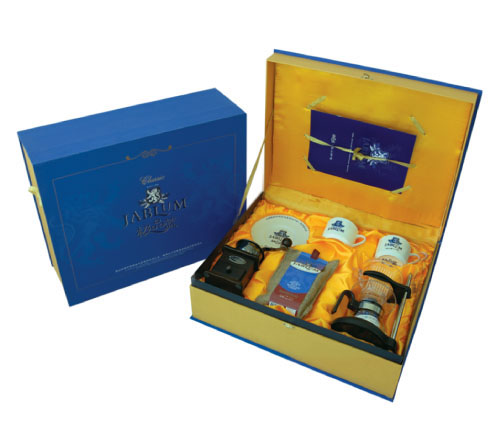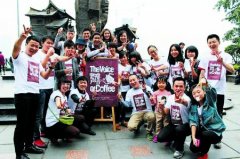Famous Coffee Limited Blue Mountain Coffee

Blue Mountain Coffee can maintain its top status today, which is also related to the local government's policy of limiting production and ensuring quality. Jamaica is not famous for Blue Mountain Coffee, regardless of the quality of mass production. But to give priority to quality, would rather sacrifice output, but also to protect the blue mountain coffee this gold-lettered signboard. Brazil, the world's largest coffee producer, produces 30 million bags (60 kg each) of coffee a year, while Jamaica produces just over 40, 000 bags a year. This shows the difference in output.
Blue Mountain Coffee has a mellow taste, moderate acidity, sweetness and bitterness, and has an attractive elegance, which is really different from other varieties of coffee.
In recent years, all kinds of coffee shops in China have sprung up like bamboo shoots after a spring rain, and top Blue Mountain coffee has naturally become the target pursued by people, especially young people. For a moment, it seems that only after tasting Blue Mountain Coffee can you really drink coffee. And if you don't sell Blue Mountain Coffee, it's not a real coffee shop.
The price of each cup of "Blue Mountain Coffee" in China ranges from more than 30 yuan to more than 100 yuan, which is really expensive. Of course, if it is the real thing, the above price is also in line with the valuable status of Blue Mountain Coffee.
The area of Jamaica is small, northeast of the capital Kingston is the Blue Mountains. Most of the peaks of the Blue Mountains are more than 1800 meters above sea level, and the famous Blue Mountain Coffee grows in this mountain area. It is reported that Jamaican coffee was introduced by a French naval officer from a nearby area in 1723, but the cultivation of this crop did not attract enough attention at first.
Blue Mountain Coffee came to prominence in 1932 when the Jamaican authorities adopted an important decision to encourage coffee cultivation to reduce dependence on sugar exports. In order to ensure the quality of coffee during transportation, Jamaica is the last country that still uses traditional wooden barrels to transport coffee.
The unique flavor of Blue Mountain Coffee is related to its geographical location and climatic conditions. Generally speaking, south of the Tropic of Cancer and north of the Tropic of Cancer, this area is suitable for growing coffee, called the "coffee belt". Jamaica is just south of the Tropic of Cancer, with steep blue mountains, fresh air, no pollution, rain all the year round, great temperature difference between day and night, and unique fertile new volcanic soil.
Most importantly, every afternoon, clouds cover the whole mountain area, which not only shades the coffee trees naturally, but also brings abundant water vapor. Because of its superior geographical and climatic conditions, Blue Mountain Coffee is superior to others in taste and aroma.

It is very important to choose the right ripe coffee beans when picking. Immaturity or ripeness will affect the quality of the coffee. The picked coffee beans are shelled on the same day, and then let them ferment for 18 hours. After that, the coffee beans were cleaned and screened. The subsequent process is to dry, which must be carried out on the cement floor or on a thick blanket until the humidity of the coffee beans drops to 12% 14%. And then store it in a special warehouse. Take it out and roast when needed, then grind it into powder. These procedures must be strictly mastered, otherwise, the quality of coffee will be affected.
Blue Mountain Coffee can maintain its top status today, which is also related to the local government's policy of limiting production and ensuring quality. Jamaica is not famous for Blue Mountain Coffee, regardless of the quality of mass production. But to give priority to quality, would rather sacrifice output, but also to protect the blue mountain coffee this gold-lettered signboard.
Blue Mountain coffee beans are divided into several kinds according to their quality. the top blue mountain coffee beans generally do not enter the circulation market, and most of them are booked by the royal family and tycoons. The Blue Mountain coffee beans on the market are "Blue Mountain" beans guaranteed by the Jamaican government.
Statistics from the Coffee International website show that in 2003-2004, Jamaica produced 43000 bags of coffee, of which 24000 bags were exported. Nearly 90 per cent of exports go to Japan and the rest to Europe and the US. Because the output is limited and the export volume is not large, Blue Mountain coffee has been in short supply in the international market. As the saying goes, blue mountain coffee is expensive even in its place of origin, with a 4-ounce (114-gram) bag of blue mountain coffee selling for nearly $7 on the Jamaican market.
However, the output and export volume of Jamaican Blue Mountain Coffee is limited, China does not import Blue Mountain Coffee directly from Jamaica, and the International Coffee Organization has no record of exporting Blue Mountain coffee beans to China.
In addition, it is believed that most domestic coffee lovers do not have the ability to distinguish between different quality coffee. So remind people to beware: although you pay a high price, the coffee in your cup is probably not the real Blue Mountain coffee.
Important Notice :
前街咖啡 FrontStreet Coffee has moved to new addredd:
FrontStreet Coffee Address: 315,Donghua East Road,GuangZhou
Tel:020 38364473
- Prev

A group of baristas love bitter taste, compete with each other and are more willing to share.
Friends who love coffee take a group photo in Hongya Cave. This group of pictures are provided by interviewees. Wang Xuechao and Xiao Xiangdan, a reporter from Jia Ming Business Daily, a coffee barista made by him, are no stranger to urbanites. Behind the aroma of coffee, there is a group of people who make a living for coffee. There are similarities and differences between coffee and Chinese cuisine, which can be divided into making (both of them are hot), embellishment and embellishment.
- Next

ASEAN Coffee goes northward to enter the Chinese Market
Chinanews.com, Nanning, September 19 / PRNewswire-Asianet /-- the 11th China-ASEAN Expo was held in Nanning, Guangxi, from September 16 to 19. During this period, many coffee merchants from ASEAN countries and their agents in China exhibited and introduced coffee from ASEAN countries, trying to seize the Chinese market.
Related
- Workers collapse! Lucky suspects that it will introduce freshly cut fruits?!
- 1-point subsidy recipients wear thousand-yuan watches?! Local response: For low-income households
- Can lightly roasted coffee beans be used to extract espresso? How finely should you grind high-quality coffee beans to make Italian latte?
- What is the difference between the world's top rose summer coffee and Yejia Shefi? What are the flavor characteristics of Yega Shefi coffee and Panama rose summer?
- The ceremony is full! Starbucks starts to cut the ribbon at a complimentary coffee station?!
- A whole Michelin meal?! Lucky launches the new "Small Butter Apple Crispy Latte"
- Three tips for adjusting espresso on rainy days! Quickly find the right water temperature, powder, and grinding ratio for espresso!
- How much hot water does it take to brew hanging ear coffee? How does it taste best? Can hot water from the water dispenser be used to make ear drip coffee?
- What grade does Jamaica Blue Mountain No. 1 coffee belong to and how to drink it better? What is the highest grade of Blue Mountain coffee for coffee aristocrats?
- What are the flavor characteristics of the world-famous coffee Blue Mountain No. 1 Golden Mantelin? What are the characteristics of deep-roasted bitter coffee?

